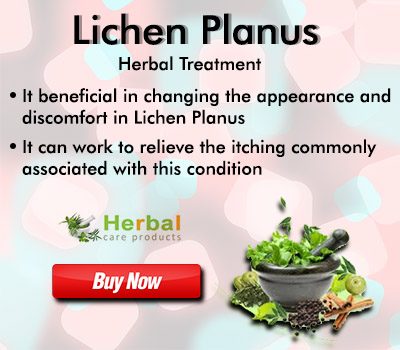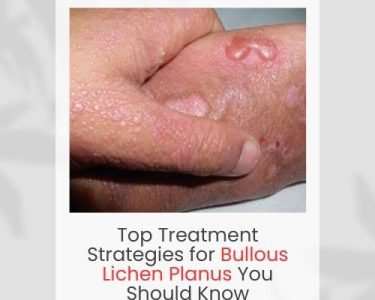What Is Lichen Planus?
Whether lichen planus is an autoimmune illness or the body’s natural reaction to an allergen is a point of contention. The outcome is an aggressive and unpleasant rash that can impact practically every portion of the body, regardless of how it is classified. Cultivar lichen planus is a type of lichen planus that affects the skin. Some people, on the other hand, may exclusively have oral lichen planus. Because there are several varieties of lichen planus, and lichen planus can often resemble other disorders like pityriasis lichenoides, it’s critical to see your doctor for an accurate diagnosis.
Natural Treatments for Lichen Planus
Turmeric
According to a study published in the National Journal of Maxillofacial Surgery, a turmeric ointment may help to improve the appearance and discomfort of oral lichen planus. Despite the modest size of this pilot study, the researchers believe that curcumin’s anti-inflammatory, antiviral, and antibacterial capabilities can aid in the prevention of squamous cell carcinoma of the head and neck, a known risk of oral lichen planus.
Turmeric’s health advantages are well-documented, and studies have shown that it can reduce inflammation and pain, two symptoms that are commonly treated with corticosteroids, antihistamines, and prescription pain relievers. When choosing a supplement, look for one that has piperine, as this boosts turmeric absorption significantly.
Try a turmeric face mask to relieve itching and pain on your skin, but be careful because it will stain your clothing and skin if left on for too long. Turmeric tea may aid in the healing process while also alleviating pain and suffering.
Vitamin A
As previously stated, retinoid-based medicines are frequently used in traditional treatments to help reduce many of the symptoms. Vitamin A also helps to keep skin and mucous membranes healthy, according to the University of Maryland Medical Center. Because lichen planus attacks these two systems, boosting your vitamin A intake may be beneficial.
Eat more vitamin A-rich foods during an outbreak, such as grass-fed beef liver, raw carrots, sweet potatoes, kale, spinach, and winter squash. Vitamin A not only treats the rash, but it also strengthens the immune system and reduces inflammation, which are two key components in the fight against lichen planus.
Folate
Researchers from Thailand’s Chulalongkorn University’s Department of Oral Medicine discovered that 44 percent of the individuals with oral lichen planus in the study were folate deficient. The researchers suggested taking vitamins on a daily basis. Surprisingly, the same group had normal B12 levels in their bodies.
Those with liver illness and those using specific drugs, such as diuretics and diabetes medications, are at risk for folate insufficiency. As previously stated, liver problems, diuretics, and diabetes drugs can all raise your chances of contracting this disease. Folate-rich Foods from the legume family, such as garbanzo beans, pinto beans, and lentils, as well as beets, asparagus, avocados, and beef liver, should be included in a treatment plan.
Epsom Salt Baths
Epsom salt has been used for millennia to ease tight muscles and purify the body. It is well-known for assisting in the reduction of stress, the elimination of toxins, and the reduction of pain and inflammation. Fill a warm bath with 2 cups Epsom salt and swish it around with your arm. For optimal effects, soak for at least 30 minutes. Additionally, adding your preferred essential oils to the mix can bring additional relief.
Tea Tree Oil
The advantages of tea tree oil are well established. When it comes to Herbal Treatment Lichen Planus on the scalp, my itchy scalp shampoo recipe may help. Tea tree oil, coconut oil, aloe vera, apple cider vinegar, and raw honey, for example, contain antibacterial, antifungal, and antiviral effects. They also help to reduce the itching that is prevalent with this illness.
If you have oral lichen planus, a mouthwash containing tea tree oil may help you heal faster, especially if your lichen planus is erosive or bullous. However, it may irritate the mouth and produce more pain in some people; if this happens to you, stop using it right away.
Coconut Oil
Coconut pulling twice a day for oral lichen planus may help to alleviate symptoms and bring relief. By literally sucking out the toxins, the technique helps to detoxify your mouth. Killing bad breath, easing a dry mouth, lowering inflammation, and boosting the immune system are just a few of the advantages.
If you have lichen planus on your skin, using coconut oil to the affected areas will help relieve itching, burning, and pain. Apply as needed throughout the day.
Oats
Oats are commonly used in natural beauty treatments as a gentle exfoliant and skin soother. Sloughing off the dead skin as the sores and blisters change over time might help to alleviate irritation and enhance the appearance. Mix one part oats with one part raw yoghurt and set aside for 20 minutes at room temperature before adding a quarter part raw honey. Allow 10 to 15 minutes to set after applying freely to the affected regions. Using warm water, rinse completely and pat dry.
Sunshine
Photochemotherapy light treatment, one of the above-mentioned conventional treatments, is useful in curing this illness. However, side effects might arise, and keeping up with regular treatments can be difficult.
Getting direct, unprotected sun exposure can expedite healing and provide relief in addition to correcting a vitamin D deficiency. Make it a point to spend at least 15 minutes each day in direct sunlight — without sunscreen — while you have lichen planus. The best periods to shoot are in the middle of the day. As a result, roll up your sleeves or pant legs to expose the affected area as much as possible during this time.
Manage Stress
Stress, according to the Herbal Care Products, exacerbates the symptoms of this disease and can lead to recurrences. Do activities that calm your mind and spirit to help you relax. Guided meditation, yoga, and other natural stress relievers, for example, can all be included in your daily practise.




